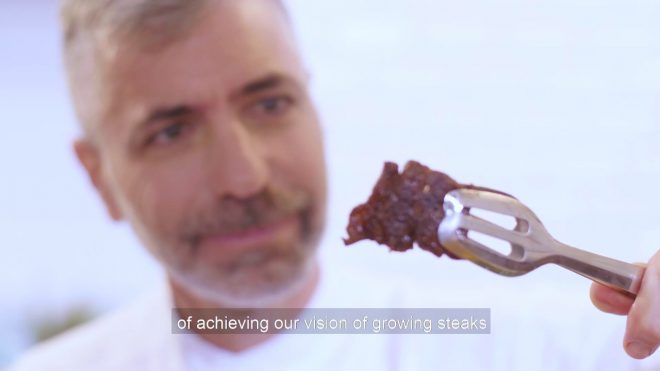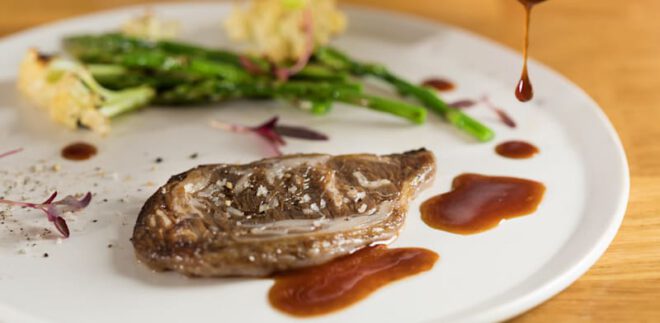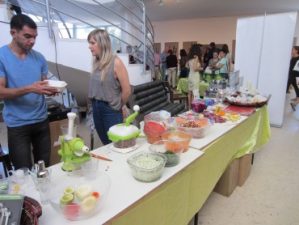Aleph Farms and its research partner at the Technion – Israel Institute of Technology, have successfully cultivated the world’s first slaughter-free ribeye steak, using three-dimensional (3D) bioprinting technology and natural building blocks of meat – real cow cells, without genetic engineering and immortalization.
Aleph now has the ability to produce any type of steak and plans to expand its portfolio of quality meat products.
Unlike 3D printing technology, Aleph Farms’ 3D bioprinting technology is the printing of actual living cells that are then incubated to grow, differentiate, and interact, in order to acquire the texture and qualities of a real steak.
A proprietary system, similar to the vascularization that occurs naturally in tissues, enables the perfusion of nutrients across the thicker tissue and grants the steak with the similar shape and structure of its native form as found in livestock before and during cooking.
Are steak growers on Mars out to lunch?
“This breakthrough reflects an artistic expression of the scientific expertise of our team,” said Didier Toubia, Co-Founder and CEO of Aleph Farms. “Additional meat designs will drive a larger impact in the mid and long term. This milestone for me marks a major leap in fulfilling our vision of leading a global food system transition toward a more sustainable, equitable and secure world.”
The cultivated ribeye steak is a thicker cut than the company’s first product – a thin-cut steak. It incorporates muscle and fat similar to its slaughtered counterpart and boasts the same organoleptic attributes of a delicious tender, juicy ribeye steak you’d buy from the butcher.

Bibi Netanyahu tastes some Aleph lab steak
“With the realization of this milestone, we have broken the barriers to introducing new levels of variety into the cultivated meat cuts we can now produce.
“As we look into the future of 3D bioprinting, the opportunities are endless,” says Technion Professor Shulamit Levenberg, Aleph’s Co-Founder, Chief Scientific Advisor and a major brainpower behind the company’s IP. Levenberg is considered a global leader in tissue engineering and has amassed over two decades of research in the field at the Massachusetts Institute of Technology (MIT), in the United States and at the Technion, in Israel. Levenberg is also the former Dean of the Biomedical Engineering Faculty at the Technion.

Aleph Farms’ zealous plans to diversify its offering align with its mission to create a global platform for local production, leveraging a highly scalable technology to create culinary experiences that can be adapted for the different food cultures around the world.
With the advent of synthetic milk or meat- or animal-free products cultivated in the lab, or alternatives to honey grown in an engineered bee stomach (another Israeli invention) –– some people think all this “progress” in the lab is really people out to lunch. Read our story about engineered honey for some alternative points of view to animal substitutes and our farming story on high tech hydroponic solutions that also may be out to lunch. The big solution may be simpler – regenerative agriculture. That what Woody Harrelson says, cow farts and all.




